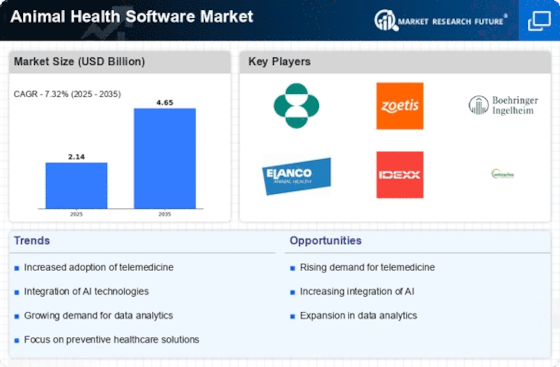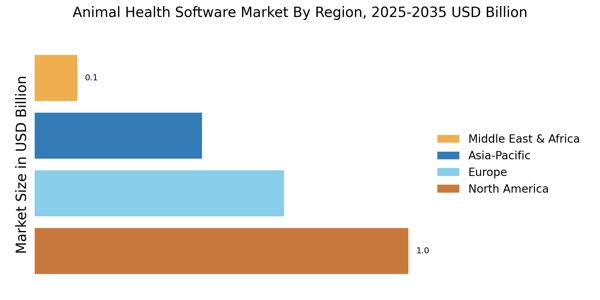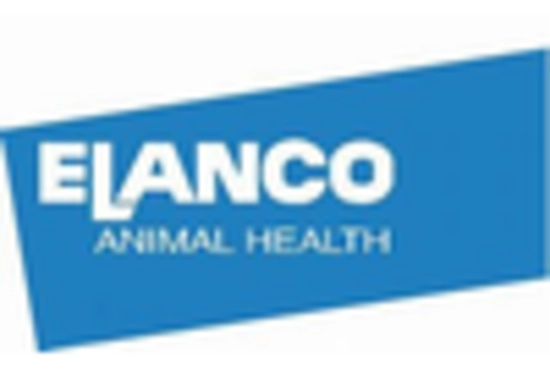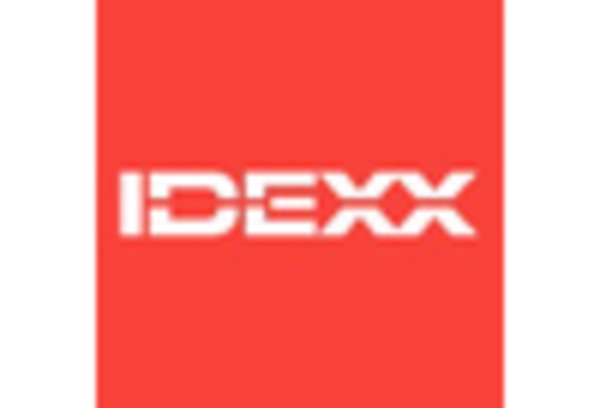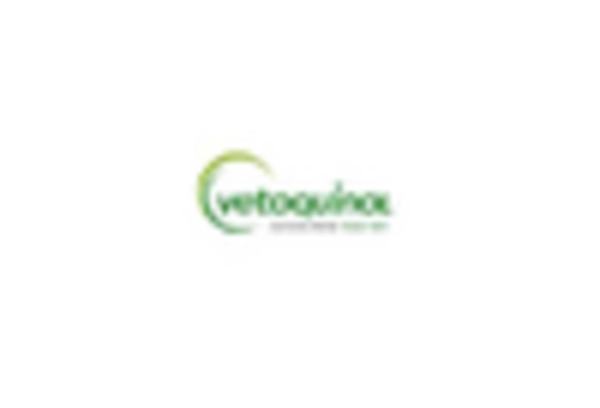Increased Focus on Preventive Healthcare
The Animal Health Software Market is witnessing a heightened emphasis on preventive healthcare measures for animals. This shift is largely influenced by the rising awareness of animal welfare and the economic benefits associated with preventive care. Software solutions that facilitate regular health monitoring, vaccination schedules, and disease prevention strategies are becoming essential tools for veterinarians and animal owners alike. The market for preventive healthcare software is expected to expand significantly, as stakeholders recognize the value of investing in health management systems. This trend not only improves animal health outcomes but also reduces overall healthcare costs, thereby driving growth within the Animal Health Software Market.
Growing Investment in Animal Health Startups
The Animal Health Software Market is experiencing a surge in investment directed towards animal health startups. Venture capitalists and investors are increasingly recognizing the potential of technology-driven solutions in improving animal health management. This influx of capital is fostering innovation and the development of new software applications that address various challenges in the industry. Startups focusing on telemedicine, data analytics, and health monitoring are particularly attracting attention. As these companies bring novel solutions to market, the overall landscape of the Animal Health Software Market is likely to evolve, leading to enhanced services and improved health outcomes for animals.
Rising Demand for Livestock Management Solutions
The Animal Health Software Market experiences a notable increase in demand for livestock management solutions. This trend is driven by the need for efficient tracking of animal health, breeding, and productivity. As livestock farming becomes more data-driven, software solutions that offer real-time monitoring and analytics are gaining traction. The market for livestock management software is projected to grow at a compound annual growth rate (CAGR) of approximately 8% over the next few years. This growth is indicative of the industry's shift towards technology adoption, enabling farmers to optimize operations and enhance animal welfare. Consequently, the Animal Health Software Market is likely to see a surge in innovative solutions tailored to meet the specific needs of livestock producers.
Technological Advancements in Veterinary Practices
Technological advancements are reshaping the landscape of the Animal Health Software Market. Innovations such as cloud computing, mobile applications, and data analytics are enhancing the capabilities of veterinary practices. These technologies enable veterinarians to access patient records, manage appointments, and communicate with clients more effectively. The integration of advanced software solutions is projected to increase operational efficiency and improve service delivery in veterinary clinics. As a result, the demand for sophisticated veterinary software is likely to rise, contributing to the overall growth of the Animal Health Software Market. The ability to leverage technology for better patient care is becoming a key differentiator in the competitive veterinary landscape.
Regulatory Compliance and Traceability Requirements
The Animal Health Software Market is significantly influenced by regulatory compliance and traceability requirements. Governments and regulatory bodies are increasingly mandating that animal health records be maintained accurately and transparently. This has led to a growing need for software solutions that can ensure compliance with these regulations while providing traceability throughout the supply chain. The market for compliance-focused software is expected to expand as stakeholders seek to avoid penalties and enhance their operational integrity. Furthermore, the ability to track animal health data from farm to table is becoming a critical component of food safety initiatives, thereby driving demand within the Animal Health Software Market.


